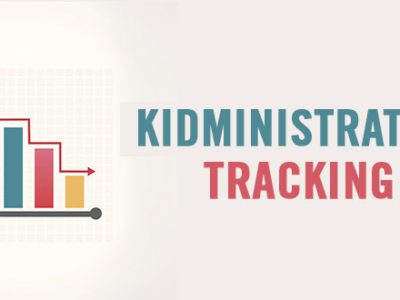 Planning well is an essential practice for the wise and savvy kids minister. If you cannot accurately estimate how many kids will walk in each weekend or how many families will accept the invitation to your annual outreach event, you could find yourself planning in a way that’s out of proportion and zap the success out of your Sundays. Perfectly predicting the quantity of coloring pages to prepare, how many gallons of glue to gather, and the correct count of cracker cartons to keep in your cupboards may seem to come naturally to some people, but in reality, all of these things are learned through experience. If you do something long enough, you will begin to notice predictable patterns. You can learn these things more quickly if you are intentional about keeping notes on what you do and keep a record of what happened as a result.
Planning well is an essential practice for the wise and savvy kids minister. If you cannot accurately estimate how many kids will walk in each weekend or how many families will accept the invitation to your annual outreach event, you could find yourself planning in a way that’s out of proportion and zap the success out of your Sundays. Perfectly predicting the quantity of coloring pages to prepare, how many gallons of glue to gather, and the correct count of cracker cartons to keep in your cupboards may seem to come naturally to some people, but in reality, all of these things are learned through experience. If you do something long enough, you will begin to notice predictable patterns. You can learn these things more quickly if you are intentional about keeping notes on what you do and keep a record of what happened as a result.
One of the best ways to predict what will happen the next time you do something is to review a record of what happened the last time you did that thing. You might say that past performance is the best indicator of future failure … or of certain success. Keep careful notes on how you prepare for your ministry activities, what resources you deploy, and how much time and money you invest in each area; then apply some simple after-event analytics to increase your powers of prediction.
What should you track and analyze?
Time – Keep a log to track how much time it takes you to work on a specific project. This could be your regular prep for weekend worship, or extra hours required to put on a special event like VBS. If you are paid, knowing how much time you have invested in something is an essential part of determining the cost of an event. It will also help you see what activities demand the most of your time. Interested in doing a time study? Check out this earlier edition of Kidministration. Remember to track not only your time, but the time of each of your volunteers to know how many total man hours are needed for each ministry area or activity.
Money – You should keep receipts for everything you do, but it is a wise idea to code or categorize your expenditures so you can track the exact amounts to allocate to the various events, activities, and environments for which you program your ministry. Instead of lumping all your receipts together by month, or tracking them by type of purchase (e.g. – snack supplies or curriculum resources) consider coding your receipts by the program time within which the supplies are utilized. This will give you a better idea of how much of your budget goes to midweek ministry versus weekend worship. Slicing weekends into program hours will give you an even clearer picture of what each of your program hours demands in terms of budget.
People – It is essential that you evaluate the number and quality of leaders, teachers, and volunteers you utilize. For each program hour, keep notes on how many adults are needed. This may be a calculation based on a ratio of adults to children, or on the number of grownups per classroom. You may find that your need fluctuates depending on the program hour, even within a single day. For instance, your first service may require 20 adult leaders, while your second service may only require 12. Tracking attendance of children is common, but studying the trends of attendance by program time, age or grade level, and type of event attended can be very revealing as you plan.
Results – Tracking ministry results is an awesome idea that will help you in numerous ways. While the other items we have suggested tracking can help you measure efficiency, ministry results let you measure effectiveness. Results to track might include number of times the gospel is presented (and/or to how many listeners), salvation decisions, baptism decisions, meaningful prayer interactions, or verses memorized. Statistics like these are great to share with senior church staff, board members, parents, kids workers, and potential new volunteers. Everyone wants to be part of something meaningful, and ministry results are motivating.
Once you begin tracking the details of your ministry activities and using those notes to adjust your expectations for future action, you will see the effect that tracking and analysis have. Reviewing actions and outcomes will help you identify efficiencies that can save you time and energy, stretch your budget, and serve as an encouraging list of results to reflect on during moments of discouragement. As you track more details over time, you will be able to function with increased intentionality, and soon you will earn your reputation as an expert ministry manager.
Chuck Peters is Director of Operations for Lifeway Kids. A graduate of Columbia Bible College, Chuck has served vocationally & voluntarily in Student and Children’s Ministry for many years.


 Free Easter Devotional Guide for Families
Free Easter Devotional Guide for Families »
»
Leave a Reply